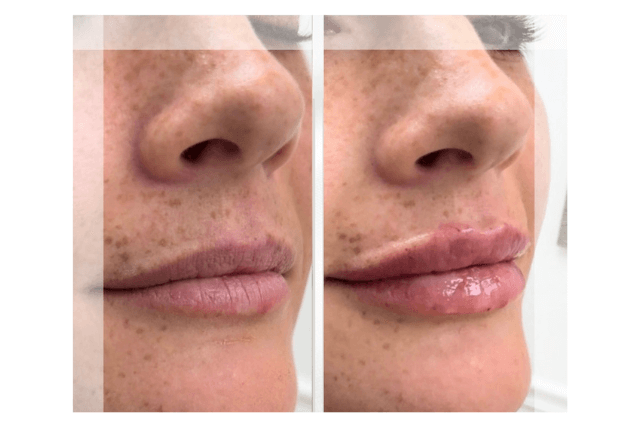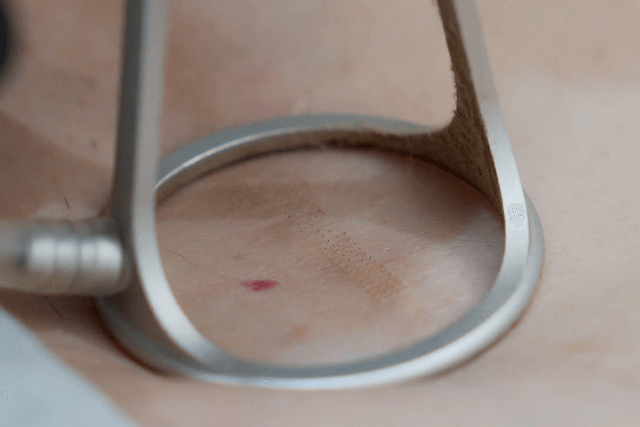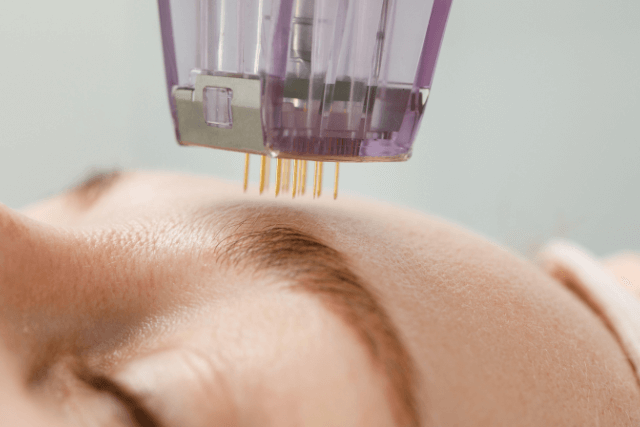Liposuction and lipoplasty are popular cosmetic surgeries to reshape and contour specific parts of the body by removing excess fat. As medical science advances more and more people are turning to these procedures to get their desired body shape. This blog will cover everything from safety and efficacy to cost and recovery from aesthetic surgery.
Liposuction and Lipoplasty Surgery Overview
Liposuction, commonly referred to as lipo, is a cosmetic surgical procedure. Remove excess fat deposits from targeted areas of the body. Common areas treated with liposuction include the abdomen, hips, thighs, upper arms, back, and neck.
The procedure aims to contour and reshape these areas, improving body proportions. It is typically performed under anesthesia, and the recovery period can vary depending on the extent of the surgery and the areas treated. The plastic surgeon uses a suction technique to help individuals get a slimmer and toned body.
What Does a Lipo Do?
Liposuction removes unwanted fat pockets in specific areas of the body to give the body a more defined shape. But remember lipo is not a weight loss procedure but a body contouring surgery.
What Does Lipo Mean in Medical Terms?
In medical terms “lipo” means fat. Liposuction means fat suction, where the surgeon removes fat cells using a suction technique.
What is Liposuction?
The purpose of liposuction is to sculpt specific areas of the body by removing excess fat. It’s often chosen by people who have fat deposits that don’t respond to diet and exercise.
What’s the Difference Between Liposuction and Lipoplasty?
Liposuction is the removal of fat from the body, and lipoplasty is the surgical reshaping or sculpting of the body. Lipoplasty includes most liposuction techniques, but may also include fat grafting and other techniques to contour the body.
What is Lipoplasty Surgery?
Lipoplasty surgery is a cosmetic procedure that involves the surgical reshaping or sculpting of the body. It may include liposuction to remove fat and other techniques like fat transfer to contour the body.
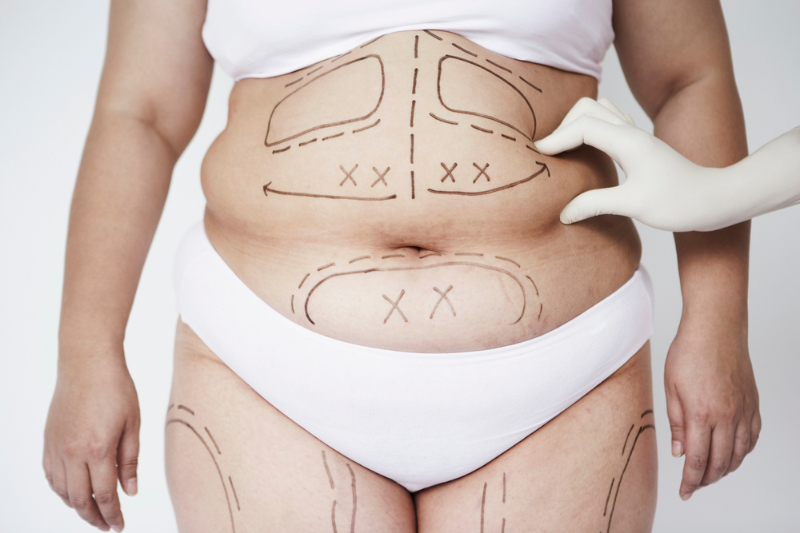
What Are the Different Types of Liposuction Procedures?
There are several types of liposuction, including:
Tumescent Liposuction
The most common form is where a solution is injected to ease fat removal, block blood flow, and reduce blood loss.
Ultrasound-Assisted Liposuction (UAL)
Uses ultrasound waves to liquefy fat cells and remove excess skin, making them easier to suction.
Laser-assisted Liposuction (LAL)
Involves using laser energy to melt fat, which is then removed.
Power-Assisted Liposuction (PAL)
Uses a specialized cannula with a mechanical movement to make blood vessels and blood flow problems, and the blood vessels help break up fat more efficiently.
Is Liposuction the Same as Plastic Surgery?
Liposuction is a type of plastic surgery that removes fat from specific areas of the body. Not all plastic surgery is fat removal; some plastic surgery procedures are skin tightening, breast augmentation, or facial reconstruction.
Can a Plastic Surgeon Get Rid of Belly Fat?
Yes, a plastic surgeon can remove belly fat with liposuction and get a flatter stomach. Sometimes it’s done with a tummy tuck.
Can Liposuction Permanently Remove Fat Cells?
Yes, a liposuction procedure permanently removes fat cells from the treated areas of your body. However, weight gain after performing liposuction surgery can cause the remaining fat cells to expand or new fat cells to form, which could affect the results.
According to a 2023 report by the American Society of Plastic Surgeons (ASPS), more than 265,000 liposuction procedures were performed in the United States alone, marking a 5% increase from previous years. Globally, the demand for liposuction continues to rise, with an estimated 1.7 million procedures performed annually.
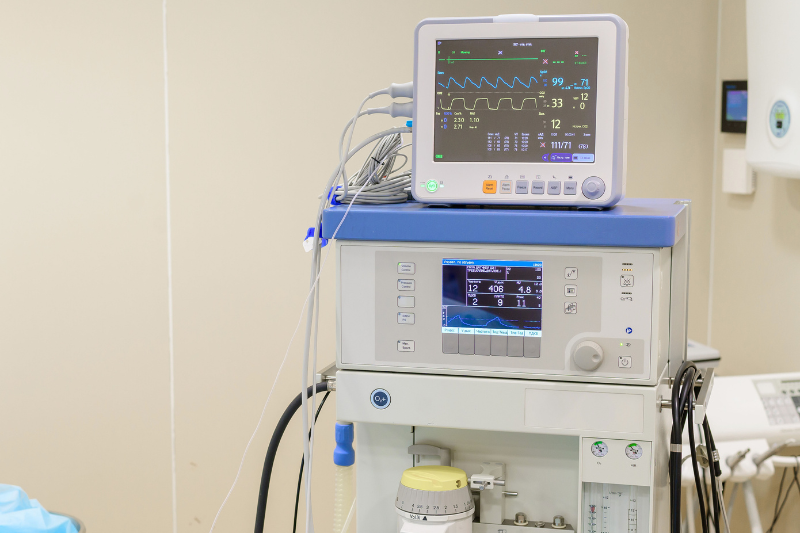
Liposuction and Lipoplasty Surgery – Safety and Risks
While liposuction is one of the most common cosmetic surgeries, like any procedure, it carries certain risks. Patients should weigh the benefits against potential complications and consult a qualified plastic surgeon.
How Safe Is a Lipo?
Liposuction is generally safe when performed by board-certified plastic surgeons, but as with any surgery, it carries some risks. These include potential complications such as infection, blood clots, and adverse reactions to anesthesia. Other possible risks include contour irregularities, fluid accumulation, and changes in skin sensation.
To minimize these risks, it’s crucial to select an experienced surgeon and surgical team and adhere to all post-operative care guidelines, such as avoiding strenuous activities and attending follow-up appointments. Proper recovery care ensures better outcomes and reduces the likelihood of complications.
Is Liposuction Good or Bad for You?
Liposuction can be beneficial for body contouring but should not be viewed as a substitute for weight loss. It is important to maintain realistic expectations and ensure you’re a good candidate for the procedure based on your health and aesthetic goals.
Is It Safe to Have a Lipoplasty?
Lipoplasty, including liposuction, is generally safe when performed by a qualified surgeon. However, patients should undergo a thorough pre-operative evaluation to ensure they’re fit for surgery.
Is Lipo Major Surgery?
Yes, liposuction considered major surgery as it involves invasive techniques, general anesthesia beforehand, and recovery time. However, advances in technology have made it less invasive than traditional plastic surgeries.
Which Is More Safe: Tummy Tuck or Liposuction?
Both procedures carry risks, but liposuction is typically considered less invasive than a tummy tuck (abdominoplasty), which involves removing excess skin and tightening abdominal muscles. The safety of each procedure depends on the patient’s overall health and the surgeon’s expertise.
What Are the Risks of Liposuction?
Some risks associated with liposuction include:
- Infection.
- Numbness.
- Fluid accumulation (seromas).
- Blood clots.
- Skin irregularities or contour deformities.
Can Liposuction Cause Complications?
Yes, though rare, complications such as fat embolism, deep vein thrombosis (DVT), and damage to surrounding organs and fatty tissue can occur. Proper post-surgical care and choosing a skilled surgeon significantly reduce these risks.
What Are the Long-Term Side Effects of Liposuction?
The long-term side effects of liposuction can include numbness, scarring, or irregular skin contours. Maintaining a healthy lifestyle post-surgery can help prevent the return of fat in untreated areas.
According to a 2024 study published in the Journal of Plastic Surgery, complications occur in less than 5% of liposuction procedures worldwide. In the U.S., the mortality rate associated with a liposuction procedure is extremely low, around 1 in 50,000 procedures.
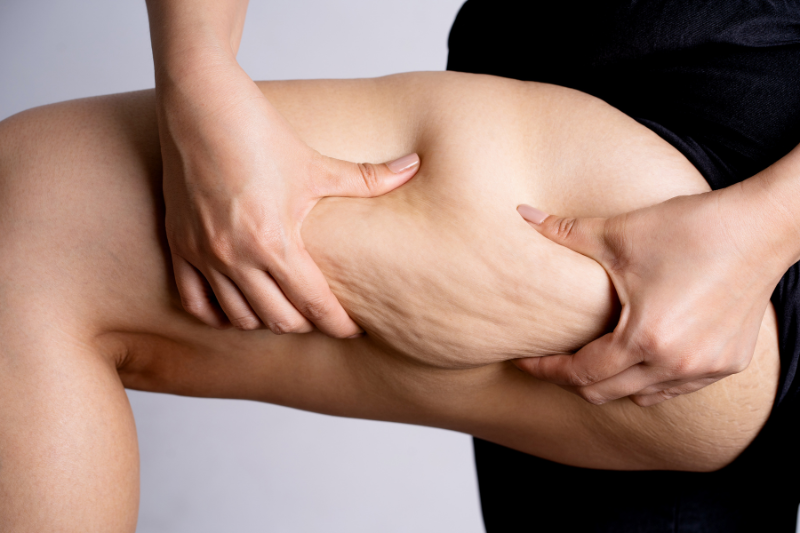
Liposuction and Lipoplasty Surgery – Pain and Recovery
Understanding the recovery process and managing expectations for post-operative pain is crucial for individuals considering liposuction. While the pain level varies from person to person, it’s important to know what to expect.
How Painful Is Liposuction?
Liposuction can cause moderate discomfort during recovery. Most patients describe the pain as similar to the soreness experienced after a strenuous workout, especially in the first few days after surgery.
Is Liposuction Surgery Painful?
The surgery itself is not painful since anesthesia is used. However, post-operative pain and discomfort can occur. This pain is generally manageable with prescribed pain medications and subsides within a few days.
How Long Does Liposuction Take to Heal?
The initial recovery period lasts about 1-2 weeks, but full healing can take several months. Most patients return to normal activities within 2-4 weeks, although swelling may persist for 6-12 months.
What Is the Recovery Time for Lipoplasty?
The recovery time for lipoplasty varies depending on the extent of the procedure. For most people, recovery lasts about 2 weeks, with full healing taking 3-6 months.
What Is the Most Painful Part of Liposuction Recovery?
The most painful part of liposuction recovery is usually the swelling and bruising that occur in the first few days. Wearing compression garments and following post-operative care instructions can help reduce discomfort.
How Long Does Swelling Last After Liposuction?
Swelling can last for several weeks after liposuction, with the majority subsiding within 6-8 weeks. However, minor swelling and fluid retention may persist for up to 6 months.
A report from the American Society for Aesthetic Plastic Surgery (ASAPS) in 2023 shows that 90% of patients report satisfaction with their liposuction results, although 15-20% experience moderate pain during recovery.
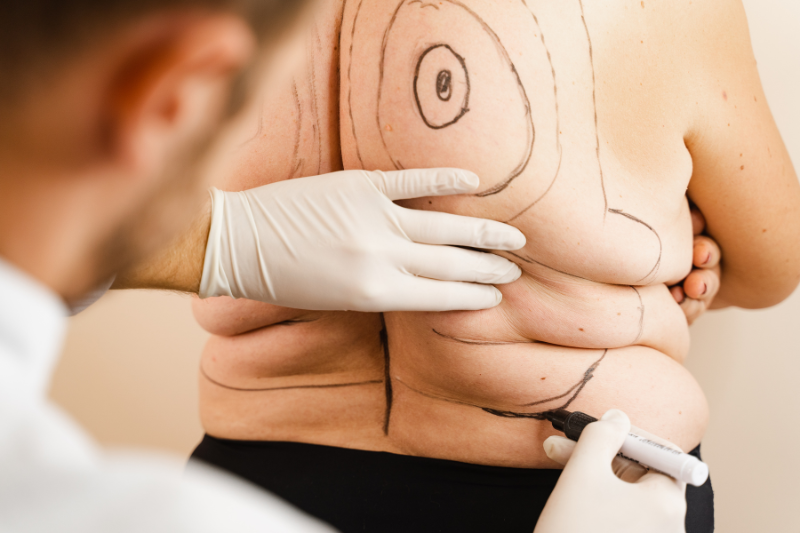
Liposuction and Lipoplasty Surgery – Effectiveness
Liposuction is for people who want to sculpt their bodies. While it removes fat, long-term success depends on living healthy.
How Long Does Liposuction Last?
Liposuction results last forever as long as you maintain your weight. Once the surgeon removes the fat cells, they don’t come back and gain fat. But weight gain can cause fat to accumulate in other areas of your body.
How Much Weight Can You Lose with Liposuction?
Liposuction is not a weight loss procedure. On average 1-5 pounds of fat can be removed during the procedure. The goal is to sculpt the body, not to gain weight and lose a lot of weight.
Is Liposuction Good for Belly Fat?
Liposuction is good for removing belly fat that is resistant to diet and exercise. But have realistic expectations, liposuction is an overall weight loss method, not an obesity treatment.
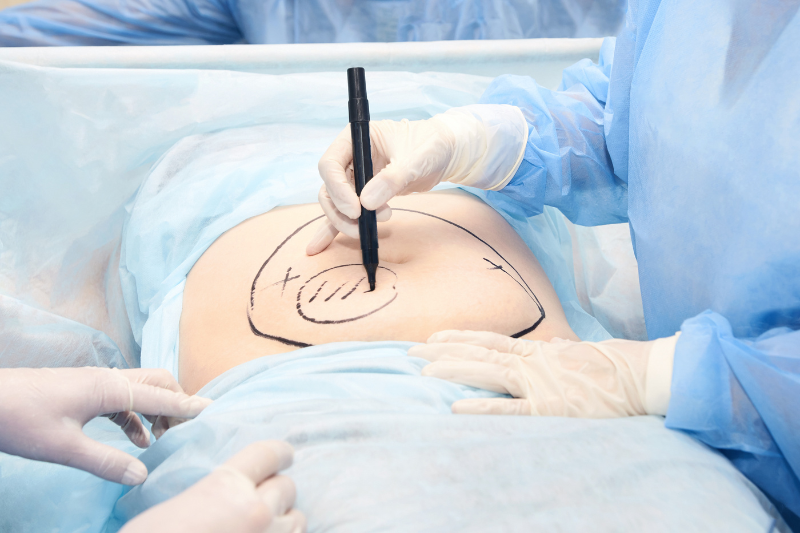
Liposuction and Lipoplasty Surgery – Expected Results
How Much Weight Is Removed with Liposuction?
Generally, the surgeon removes 2-5 liters of body fat during a single liposuction session, depending on the area treated and the patient’s body type. That’s 4-11 pounds of fat.
Is Lipo on the Stomach Worth It?
Liposuction on the stomach is worth it for individuals looking to enhance their abdominal contours and remove stubborn fat. Many patients report high satisfaction with the results.
Can Liposuction Results Be Maintained with Diet and Exercise?
Yes, maintaining a healthy diet and regular exercise is crucial for preserving liposuction results. While the fat cells removed do not come back, weight gain can lead to new fat cells developing in untreated areas.
Does Fat Return After Liposuction?
Fat does not return to the treated areas undergoing liposuction, but if a patient gains weight after liposuction, the remaining fat cells can expand, or new fat can develop in untreated areas.
According to a study published in the Plastic and Reconstructive Surgery Journal, 80% of liposuction patients maintain their results for 5 years or longer, provided they follow a healthy lifestyle. In the U.S., nearly 70% of patients report long-term satisfaction with their liposuction results.
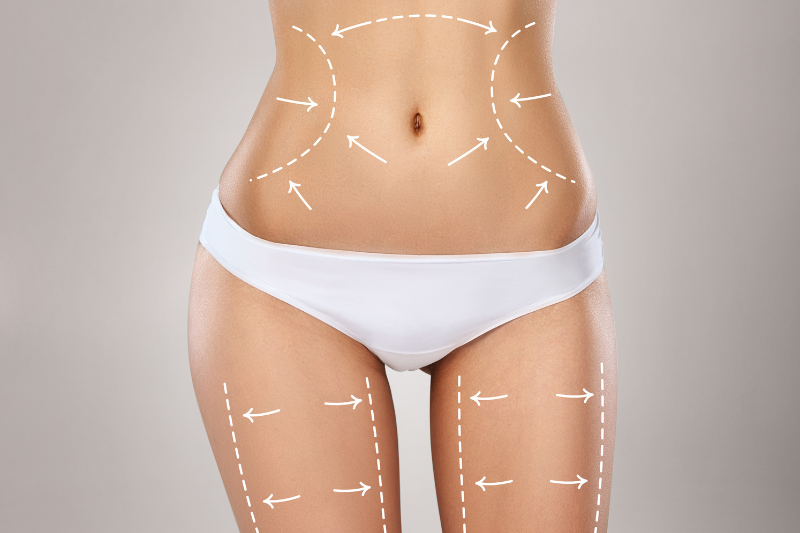
Liposuction and Lipoplasty Surgery – Costs and Procedures
Liposuction costs vary depending on the surgeon’s experience, location, and the extent of the procedure. It’s essential to understand the financial aspect before undergoing cosmetic surgery yourself.
How Much Does Liposuction Cost for Your Stomach?
Liposuction for the stomach can range from $3,000 to $8,000, depending on factors like the surgeon’s experience, the geographic location, and the complexity of the procedure.
How Much Is Liposuction in NYC?
In New York City, liposuction tends to be more expensive due to the high cost of living and demand for cosmetic procedures. The average cost ranges from $7,000 to $10,000 for abdominal liposuction.
Who Is Best for Liposuction?
A board-certified plastic surgeon with extensive experience in body contouring procedures is the ideal choice for performing liposuction. However, it’s important to choose a surgeon who specializes in liposuction and has a track record of successful outcomes.
What Happens in a Liposuction Operation?
During a liposuction operation, the surgeon makes small incisions in the targeted area, inserts a thin tube (cannula), and suctions out the fat using a vacuum device. The surgeon performs the procedure under either local anesthesia or general anesthesia, depending on the size of the area and fat treatment.
How Much Does Laser Liposuction Cost?
Laser liposuction is more expensive than traditional liposuction, $3,500 to $10,000 depending on the area and the surgeon.
Is Liposuction Covered by Insurance?
Liposuction is not covered by insurance as it’s a cosmetic procedure. However, in rare cases, surgeons perform liposuction procedures to treat medical conditions like lipedema. However, some insurance may cover part of it.
The American Society of Plastic Surgeons (ASPS) reports the average cost of liposuction in the US in 2024 is around $4,711 per area. Globally the cost varies widely, in countries like Brazil and Mexico it’s much cheaper.

Liposuction and Lipoplasty Surgery FAQs
Can Liposuction Procedure Help with Sagging Skin?
Liposuction only removes fat, and it doesn’t address loose or sagging skin. If excess skin is a concern, then surgeons recommend procedures like a tummy tuck or body lift in conjunction with liposuction.
How Old Do You Have To Be To Get Liposuction?
Generally recommended for adults over the age of 18. However, surgeons typically prefer patients to be in their 20s or older, once their body has fully developed, and when the skin retains good elasticity.
How Long After Liposuction Will I See Results?
Visible results usually appear after swelling has reduced, typically 6 to 8 weeks post-surgery. However, final results may take up to 6 months to fully develop.
Can Men Get Liposuction?
Yes, liposuction is a popular procedure for men, particularly for areas like the abdomen, chest (to address gynecomastia), and flanks (love handles).
Will Liposuction Get Rid of Stretch Marks?
No, liposuction does not remove stretch marks. These marks are caused by skin stretching and cannot be eliminated through fat removal procedures.
Can Liposuction Be Done on the Arms?
Yes, surgeons perform the procedure on good skin tone in the upper arms to remove excess fat and improve contour. Often combined with an arm lift to address any loose skin that may result after fat removal.
Is There an Alternative to Liposuction?
Non-surgical options like CoolSculpting or SculpSure use fat-freezing or laser technology to reduce fat. However, these treatments are less invasive and offer more subtle results compared to traditional liposuction.
Can I Gain Weight in the Treated Areas After Liposuction?
While liposuction removes fat cells permanently, the remaining fat cells in the body can still grow larger if you gain weight. Maintaining a healthy lifestyle is essential to preserving the results.
Can Liposuction Improve My BMI?
Liposuction may slightly reduce your weight and BMI, but it’s not a weight-loss method. The amount of fat removed is usually not enough to significantly impact BMI, which is why it’s better for contouring rather than weight reduction. Calculate your BMI.
Liposuction and lipoplasty surgery are body contouring procedures to remove fat. While the procedure works, it also comes with risks so be mindful. Consulting with a qualified plastic/cosmetic surgeon and commitment to living a healthy lifestyle after surgery brings the best results. For further insights, view liposuction before and after the gallery.


